How can you stay on top of your boiler to avoid a costly emergency call out? We’ve put together a list of 10 boiler maintenance top tips every homeowner and landlord should know.
Boiler maintenance is crucial, yet many UK homeowners tend to neglect it. Not only can boilers be expensive to repair or replace, but their inefficiency can also lead to higher operating costs. Moreover, a poorly maintained boiler could pose serious health risks to your family or tenants. Many of these tips come directly from our experience working with homeowners and landlords in Nottingham and Derbyshire.
Here are 10 simple boiler maintenance tips every homeowner and landlord should keep in mind.
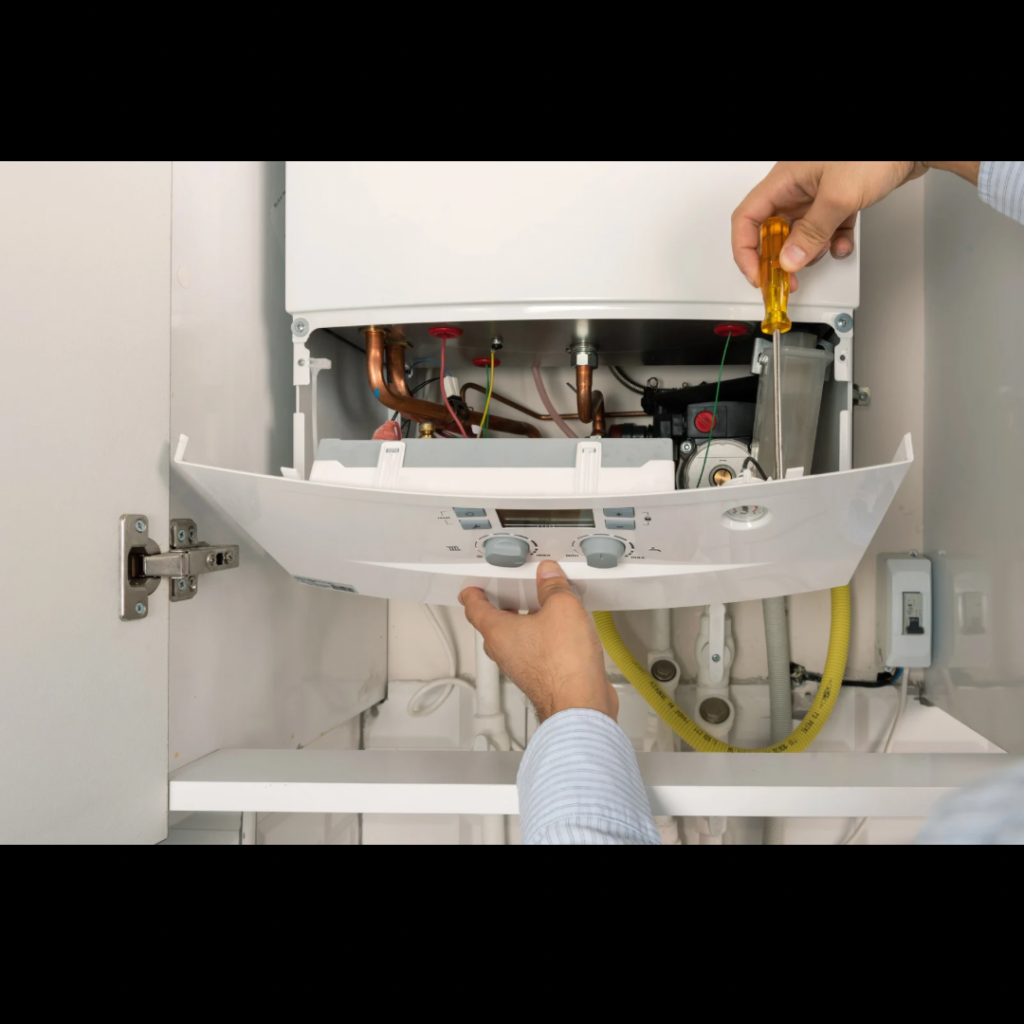
1. Get the boiler serviced every year
Boiler maintenance to ensure optimal performance, avoid malfunctions, extend the service life, maintain low heating costs, and uphold the manufacturer’s warranty for your boiler by scheduling an annual professional service. A certified Gas Safe engineer should perform this service to ensure that all components are operating safely and to detect minor issues early on, preventing them from escalating into significant, expensive repairs.
2. Check the boiler pressure
To be able to circulate hot water around the pipes and radiators in your home the boiler needs to be set at the right pressure. You should check the pressure gauge to make sure it is working to the correct level according to the manufacturer’s user instructions. This is usually between 1 and 2 bar. If the pressure is too low or too high you can adjust this yourself. Find out more in What Pressure Should My Boiler Be?
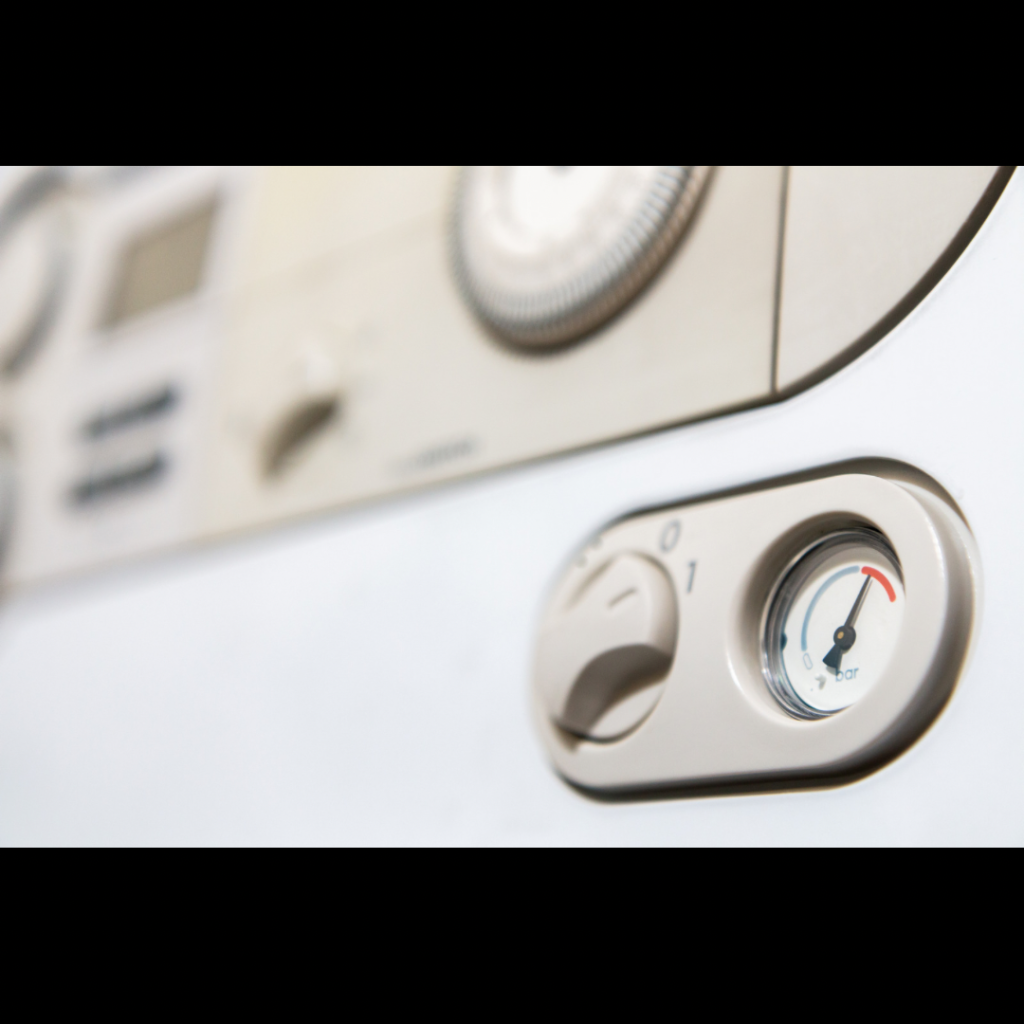
3. Bleed the radiators annually
Air pockets trapped in your radiators can compromise the efficiency of your heating system, causing inconsistent heat distribution and chilly areas. The process of bleeding your radiators can significantly enhance their performance and help with the overall effectiveness of heating and boiler maintenance. Exercise care if the valves on your radiators are coated with paint, which may hinder their operation. Using WD40 and applying careful pressure may help loosen them. If these measures are unsuccessful, it is advisable to consult with a qualified heating engineer.
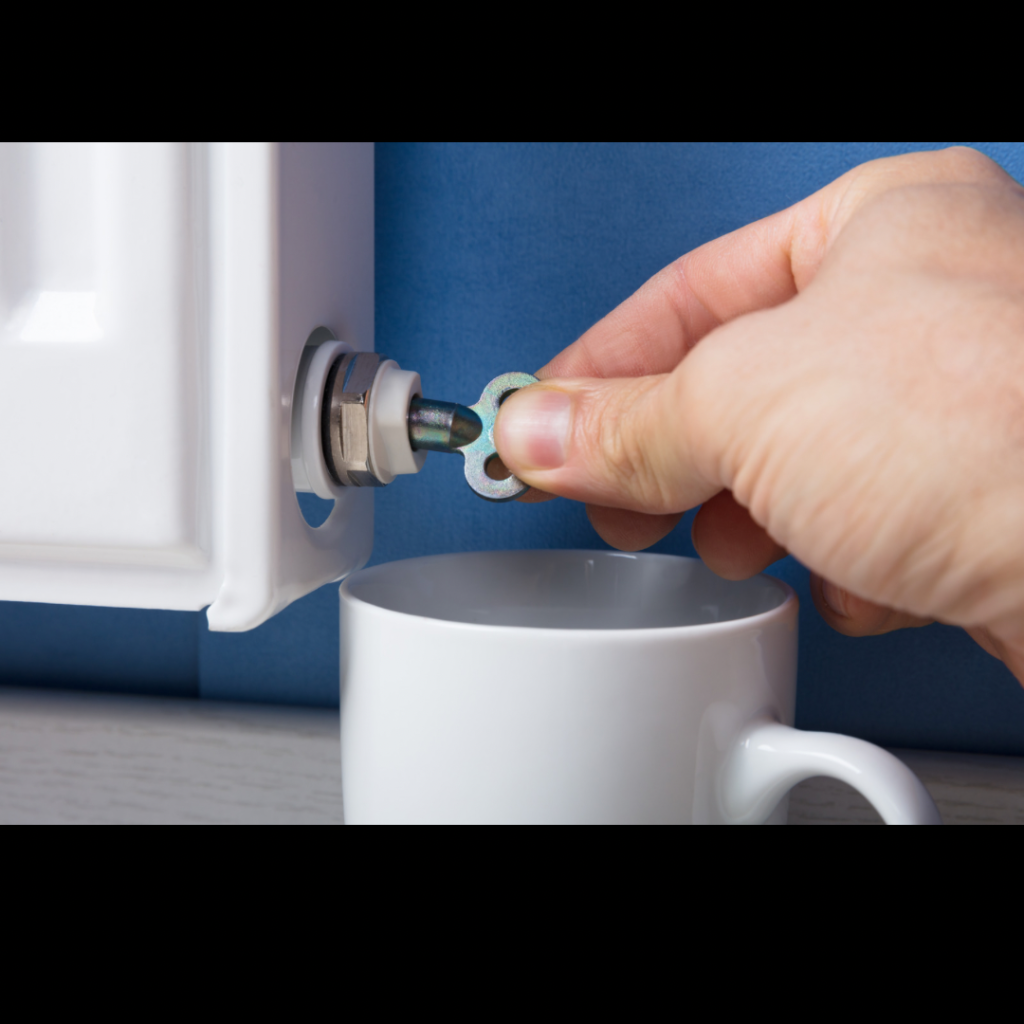
4. Balance the radiators
If the radiators which are furthest away from the boiler are cooler than those near the boiler you may need to balance them. Balancing radiators is not as straightforward as bleeding them, but can help the system to heat more evenly throughout the home.
5. Check for radiator problems
A common radiator problem is that they will get hot at the top but remain cold at the bottom. Usually this is because the debris and dirt has built up in the system over time and settled at the bottom of the radiator. This will not only be making it harder to heat your home but could be making your heating bills more expensive. You should contact an engineer who can perform a powerflush. If the radiator is not heating at all and the valve is definitely open, the valve may need replacing.
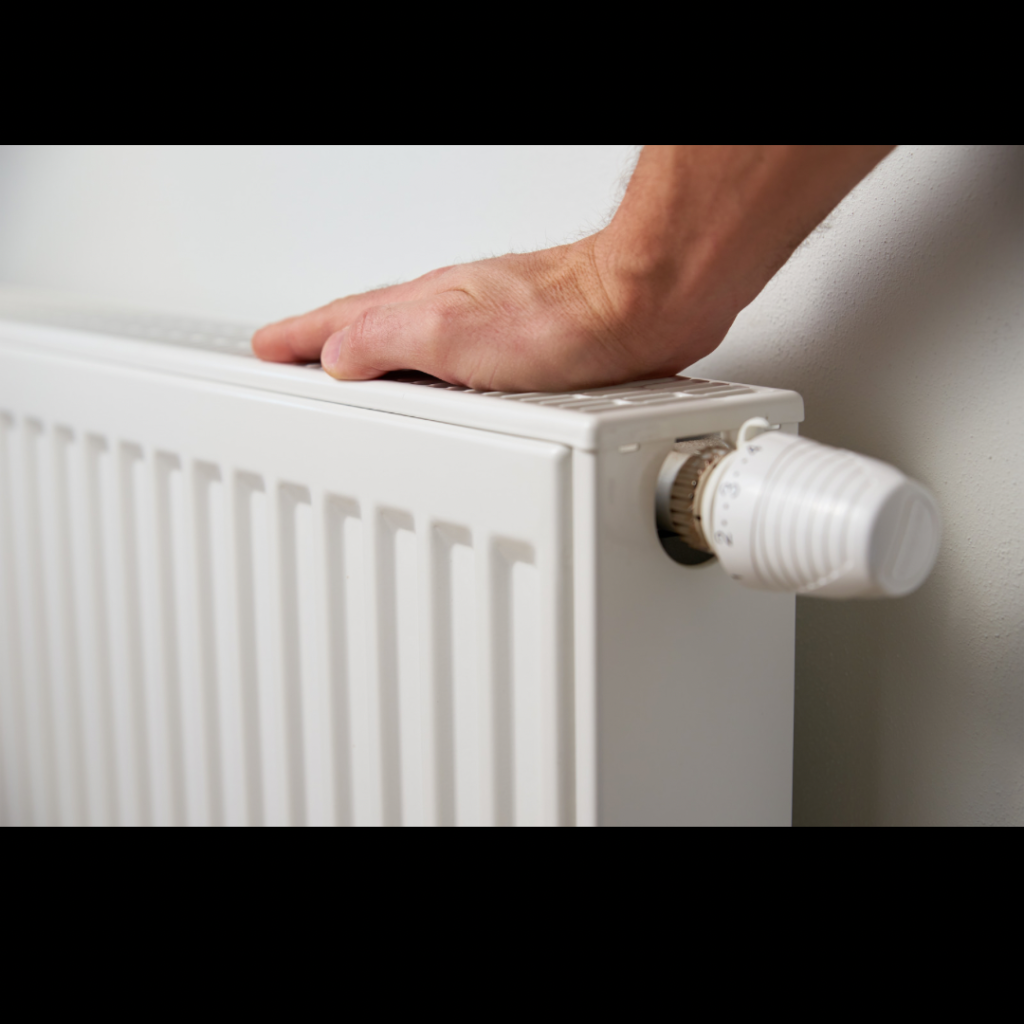
6. Is the boiler flame burning blue?
Boilers should always burn with strong blue flame. If the flame is orange or yellow you need to contact a Gas Safe engineer immediately as there could be a risk of a carbon monoxide leak.
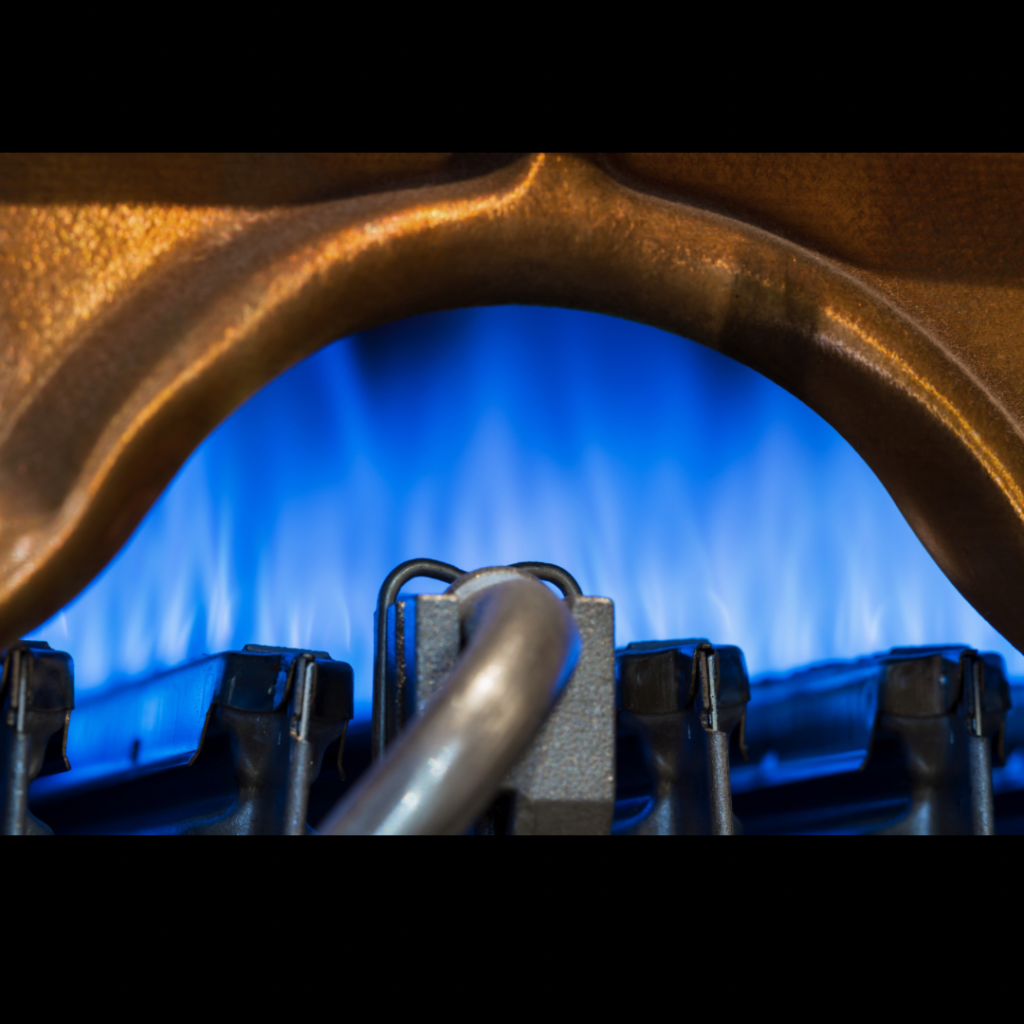
7. Correct ventilation
Boilers require plenty of space so that they are well ventilated so be sure to check that the boiler isn’t too cluttered, e.g. coats are not hung over it. Boilers can be housed in a cupboard as long as there is a minimum gap of 700 mm between the boiler and the obstruction or wall. Read more about boiler regulations here.
8. Look for dripping from the external pipe
The pipe on the outside of your home is known as the overflow pipe. Should you observe any dripping water from this pipe, it may indicate that your boiler is malfunctioning. It’s possible that the pressure release valve requires attention, and for this, you should consult a Gas Safe registered engineer.
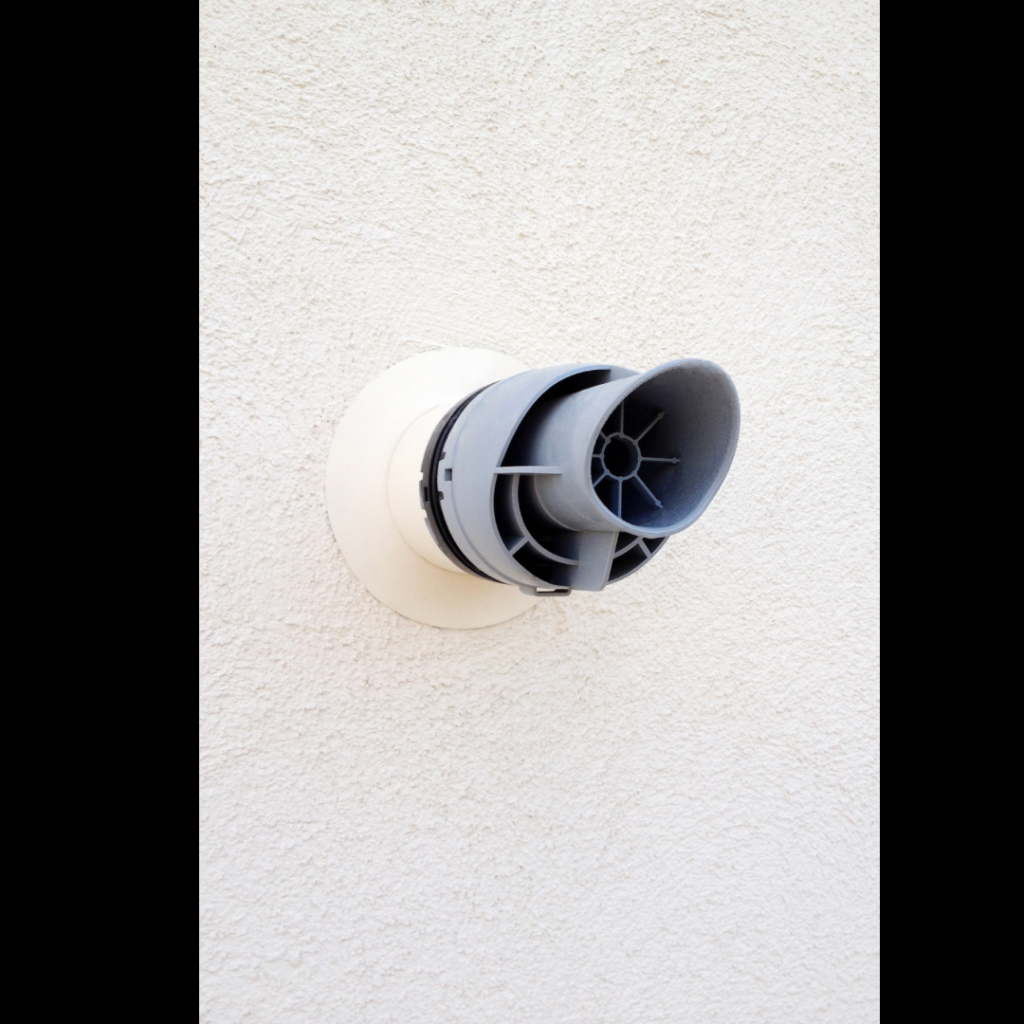
9. Boiler Maintenance and Flue location
Current flue regulations mandate that flues be both accessible and visible to facilitate the detection of any cracks or loose joints. Should your flue be situated in an area that is not readily accessible, such as running into the ceiling, it is likely that a Gas Safe certified engineer will be required to fit an access panel for proper inspection. Make sure your flue location is correct for insurance and safety.
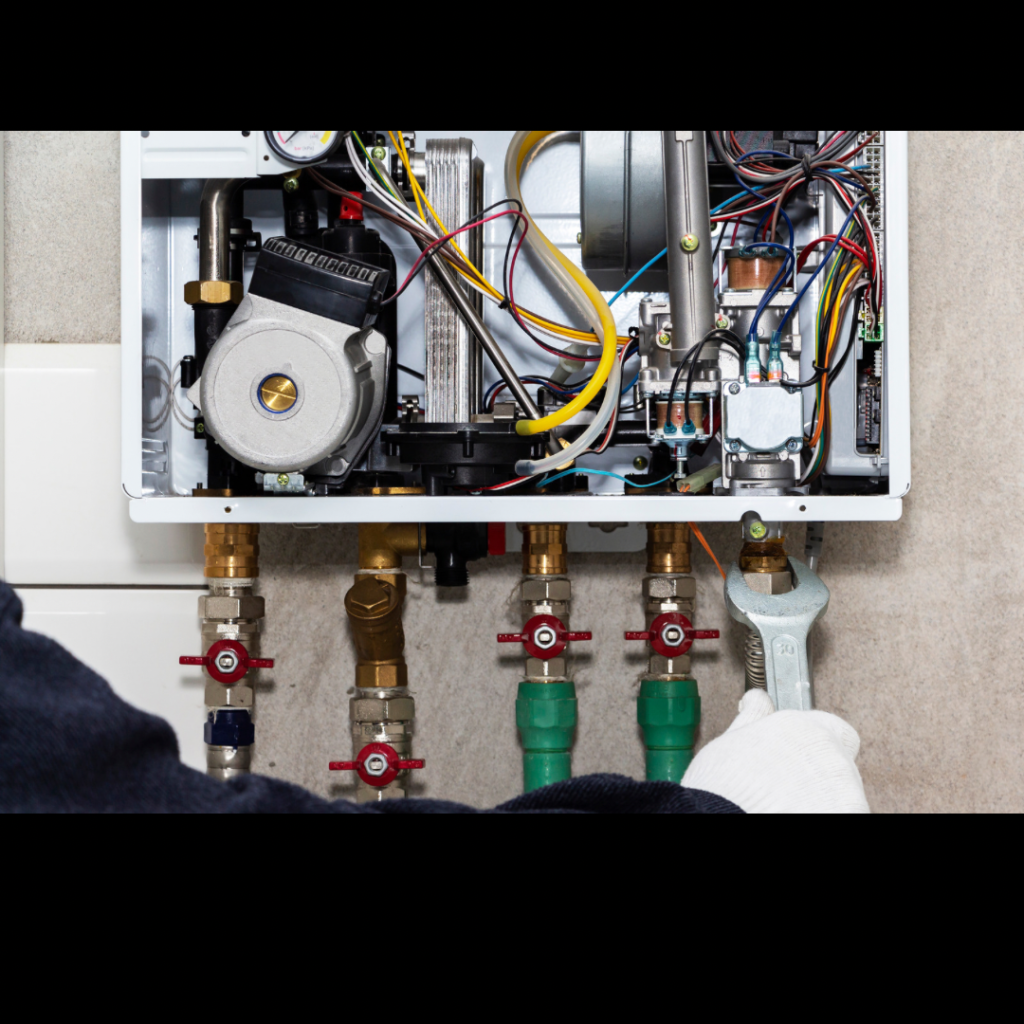
10. Don’t try and repair a boiler yourself
If you think your boiler may need a repair you need to get in touch with a Gas Safe registered heating engineer. They are the only people legally allowed to work with gas appliances and can help you to ensure your boiler is working effectively and efficiently. All Boiler Guide approved heating engineers are Gas Safe registered, but you should always check their Gas Safe ID when they arrive at your property. Gas pipes and appliances can be very dangerous if not handled correctly which can have lethal consequences including fires, explosions or carbon monoxide poisoning.
Are you a landlord or homeowner that needs a boiler service or replacement?
Boiler maintenance is important. By following our top tips you are more likely to avoid costly emergency boiler call outs. We can also advise you on the longevity of your boiler so your can plan ahead and save for a suitable replacement.
Speak to one of our team today to get a same day boiler repair and replacement booked in. Contact us
